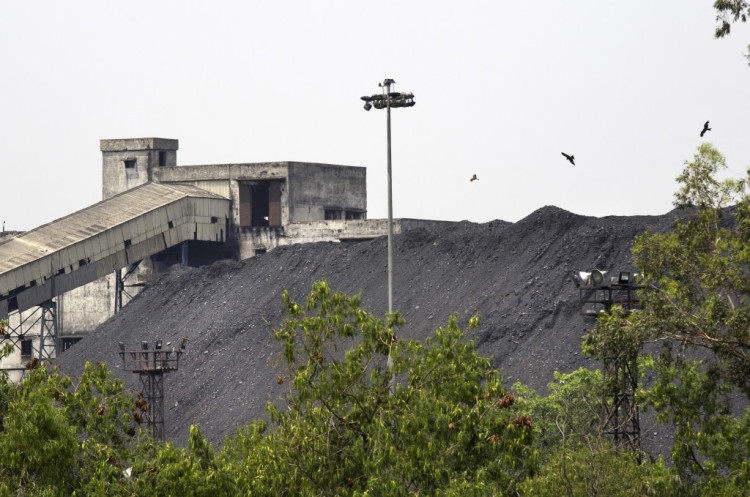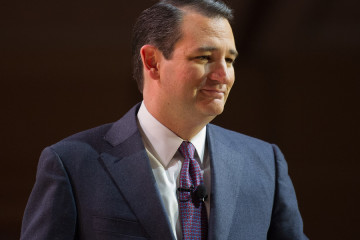Doctors Fight Coal Like It’s Tobacco to Fuel Climate Debate

©2015 Bloomberg News
NQ75ILSYF01T
(Bloomberg) — Doctors are joining the fight against pollution from coal power, adding a significant new dimension to the effort to rein in global warming.
Calling for “a rapid phaseout of coal from the global energy mix,” a panel of 46 health professionals and climate scientists identified the world’s rising temperature as one of the biggest threats to humans in the coming decades.
“The health community has responded to many grave threats in the past. It took on entrenched interests such as the tobacco industry and led on the fight against HIV/AIDS,” said Peng Gong, co-chair of the group who directs the Earth science systems center at Tsinghua University in Beijing. “Now is the time for us to lead the way in responding to another great threat.”
The recommendations in the British medical journal Lancet on Monday help add the authority of doctors to the campaign against fossil-fuel emissions, to date a fight largely waged by environmentalists and scientists. About $6.8 trillion a year is spent on health — 9.1 percent of the world economy, the paper said, so involving the industry would increase dramatically the resources taking climate into account.
Just as Pope Francis added his moral support for swift action on the environment last week, the commission brought together by Lancet widens the number of professions pushing for a change in the way energy is used. That ratchets up pressure on leaders working for an historic deal to limit emissions through United Nations talks culminating in Paris in December.
Broader Support
“The report is significant because it broadens the base of those concerned about climate change,” Michael Grubb, an author of the report and a climate policy professor at University College London, said in a phone interview. “It adds a constituency that, generally, people trust for advice on issues very dear to them — their health.”
Linking the climate issue to religion and health, the leaders of two major Christian faiths endorsed Lancet’s findings before it was published.
Archbishop of Canterbury Justin Welby, spiritual leader of the Anglican community, and Bartholomew of the Eastern Orthodox Church called for a long-term target to decarbonize the economy. Their comments follow Pope Francis’s landmark encyclical seeking curbs on fossil fuels and endorsing climate science, putting the church in alliance with environmentalists.
“Our response to climate change — both in terms of mitigation and adaptation — will reduce human suffering while preserving the diversity and beauty of God’s creation for our children,” Welby and Bartholomew wrote June 19 in the New York Times.
Coal’s Threat
The Lancet report said many of the 2,200 coal plants now under construction worldwide will damage cardiovascular and respiratory health. The alternative, renewables that pollute less, would alleviate some of that harm and make acting on climate one of the biggest opportunities to improve public health this century, the panel said.
It also recommended investing in research to link shifts in the climate to health and finance medical systems that are more resilient to climate change. The public, according to the 59- page report, faces direct threats from heat stress, floods, drought and more frequent storms as well as indirect ones such as the spread of malaria and insecurity in food supplies.
“Climate change has the potential to reverse the health gains from economic developments that have been made in recent decades,” said Anthony Costello, director of the University College London Institute for Global Health and a co-chair of the Lancet panel. Tackling the issue “can also benefit health.”
Coal’s Rebuttal
The coal industry sees itself as part of the solution, noting the world will need its fuel to bring energy to billions and that technology means it can be burned more cleanly than ever.
“Coal will still be a critical part of the global energy mix for decades to come,” said Benjamin Sporton, chief executive officer of the World Coal Association in London. “Cleaner coal” technology can “reduce the emissions of pollutants from coal combustion by 90 percent to 99.9 percent.”
In bringing doctors and religious leaders into the climate debate, the Lancet report starts to answer a shortcoming of the environmental movement. For years, campaigners relied on science to detail rising temperatures that has been criticized, especially by U.S. Republicans.
“Until recently, climate change has been presented as a rather distant threat affecting ice and polar bears,” Hugh Montgomery, an intensive care physician and director of the UCL Institute for Physical Performance, said in a phone interview. “What people must understand is that this is an immediate threat to human health.”
“The fight against coal can be compared to the fight against tobacco,” he said. “There’s a very substantial vested financial interest involved.”
To contact the reporters on this story: Reed Landberg in London at landberg@bloomberg.net; Stefan Nicola in Berlin at snicola2@bloomberg.net To contact the editors responsible for this story: Reed Landberg at landberg@bloomberg.net Randall Hackley, Ana Monteiro







No Comment